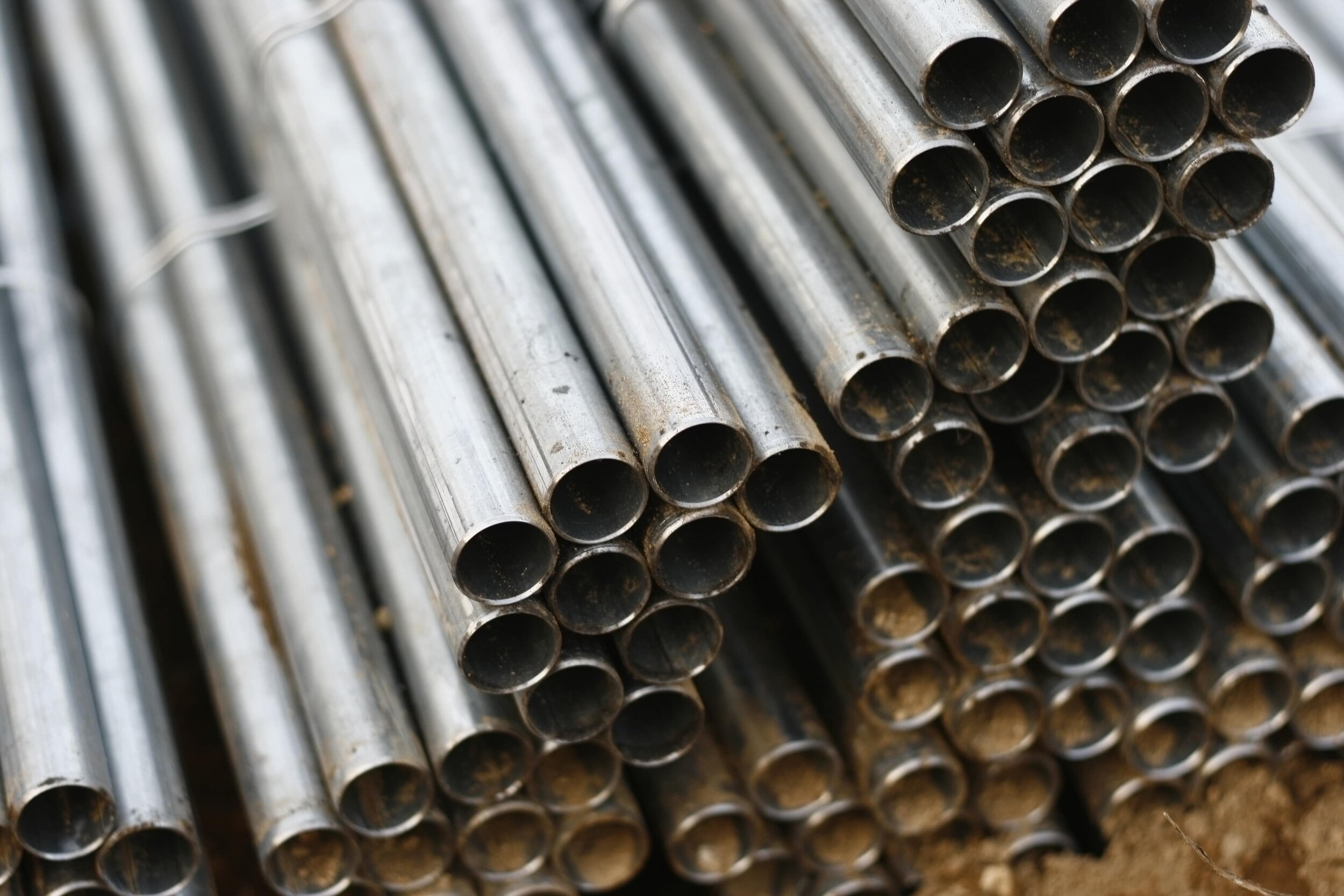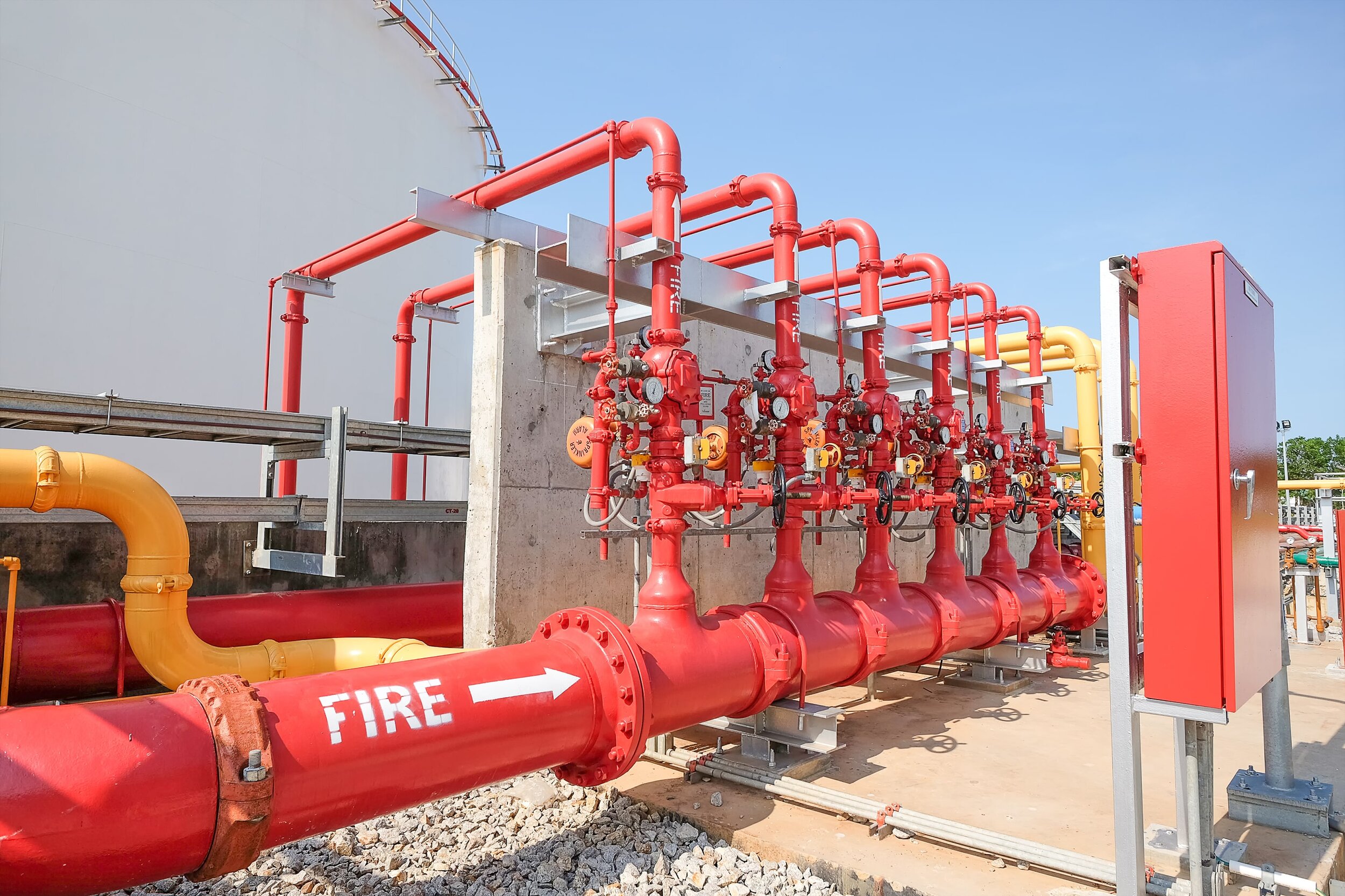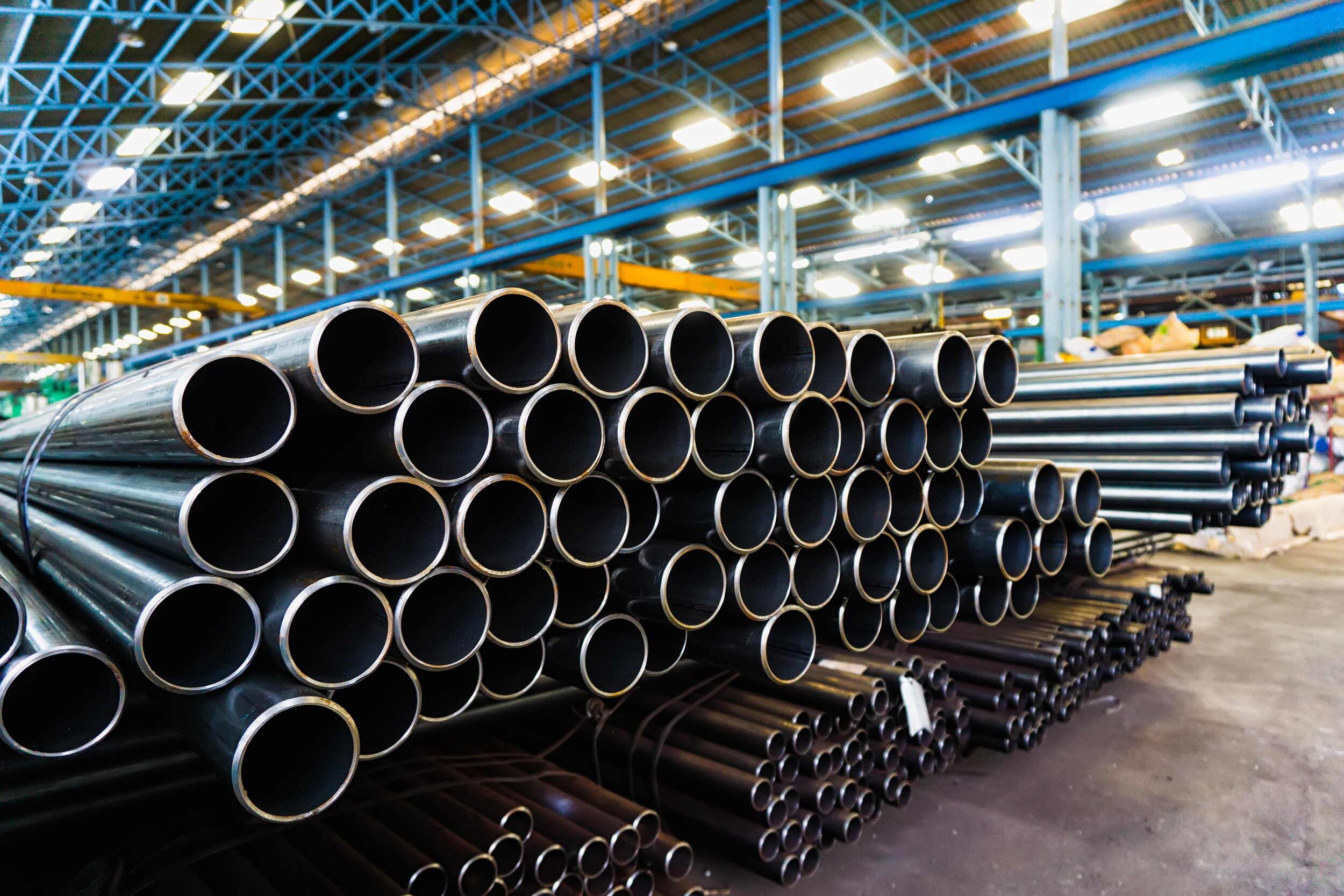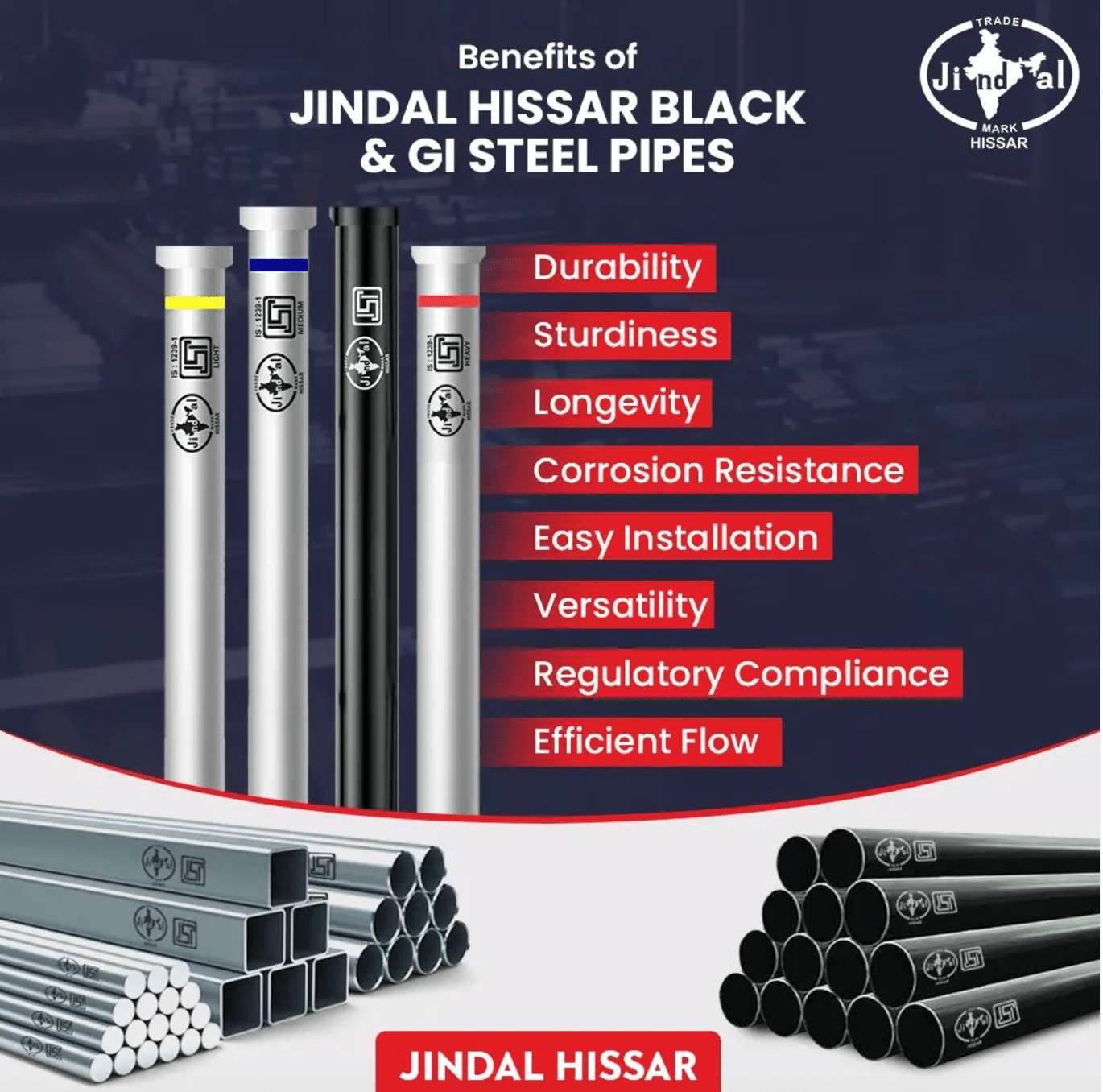Jindal Hissar Pipes
Vijay Sales Corporation is the Largest Dealer of Jindal Hissar Pipes in Delhi
Jindal Industries Pvt. Limited, Hisar - set up in 1972, manufactures high-quality MS Black and Galvanized Pipes/Tubes in the range of 15mm to 300mm as per various National and International Standards. The Company is fully equipped with modern manufacturing machinery, Mills, Welding Plants, and Galvanizing Plant
Jindal Hissar branded pipes have the maximum project approvals in India- be it for use in Fire Fighting or for use in the Plumbing sector.
At Vijay Sales Corporation, we offer our clients the best prices of Jindal Hissar Pipes anywhere in India
Content Overview


The Cutting-Edge Pipe Products of Jindal Hisar: A Deep Dive
Jindal Hisar, a leading name in the steel industry, has been a trusted provider of high-quality steel pipes and hollow sections for many years. Their product range includes Galvanized and MS ERW Pipes, Hollow Sections, and API 5L Gr.B pipes, catering to a wide spectrum of industries and applications.
Jindal Hisar Steel Pipes: Product Range
GALVANISED (GI) PIPES
Jindal Hisar specializes in the production of Galvanized Electric Resistance Welded (ERW) Pipes. ERW pipes are a popular choice in various industries due to their high strength, durability, and versatility. These pipes are manufactured through a process that involves the welding of steel strip edges, resulting in a pipe with high dimensional accuracy and uniform thickness. The Galvanisation of the Jindal Pipes is done as per IS:4736 with a coating weight of 360 g/m².
MILD STEEL (MS) ERW PIPES
Jindal Hisar produces MS ERW Pipes ranging from 15mm to 400mm in size. The thickness of the pipes manufactured varies from 2mm up to 9.5mm
On the other hand, MS ERW Pipes, made from high-quality mild steel, are known for their durability and resistance to high pressure. These pipes are commonly used in the oil and gas industry, water and sewage systems, and other industrial applications.
HOLLOW SECTIONS
In addition to pipes, Jindal Hisar also produces Hollow Sections, which are used in various structural and mechanical applications. Hollow Sections are typically square or rectangular steel tubes that are strong, durable, and lightweight, making them suitable for various applications including construction, machinery, and automotive industries.
IS 4923 is an Indian Standard that covers the requirements for Hollow Steel Sections for structural use & Jindal Hisar manufactures Hollow Sections in accordance with IS 4923.
Jindal Hisar's Hollow Sections range from 25x25mm to 250x250mm in size. These sections are produced with precision, ensuring consistent dimensions and uniform wall thickness. With their high strength-to-weight ratio, these sections are a preferred choice for many architectural and structural applications.
API 5L Gr.B Pipes
Finally, Jindal Hisar manufactures API 5L Gr.B pipes, which are specifically designed for the petroleum and natural gas industry. API 5L is a specification provided by the American Petroleum Institute (API) that defines the standard for the steel's dimension, physical, mechanical, and chemical properties.
Jindal Hisar's API 5L Gr.B pipes range from 80mm to 300mm in size up to Grade X70. These pipes are renowned for their high durability, resistance to harsh environments, and ability to handle high pressure. They are most commonly used in the oil and gas industry for transporting oil and gas across long distances.
An Overview of Pipe Grades Used by Jindal Hisar
Jindal Hisar uses a variety of pipe grades conforming to stringent specifications, both Indian and international, to cater to a wide range of applications.
Indian Standards
Jindal produces pipes conforming to IS:1239-1, IS:3589, IS:4270, IS:1161, IS:3601, IS:9295, IS/ISO:3183, IS:2713, and IS:4923. These pipes are suitable for ordinary use in water, gas, air lines, and fire fighting. They manufacture pipes in several grades such as Fe330, 410, Yst 210, 240, 310, and 355. These are used for water, gas, sewage purposes, structural purposes, mechanical & general engineering, idlers & conveyors, oil & natural gas industries, and swaged-type steel tubular poles.
International Standards
Jindal Hisar adheres to British (BS), American (ASTM), European (EN), and Japanese (JIS) standards. In accordance with BS standards, they produce pipes for ordinary use in water, gas lines, mechanical, structural & general engineering, metal scaffolding, and structural tubes of various shapes. In compliance with ASTM standards, they produce pipes for ordinary use in water, gas, air lines, agriculture, fire protection use, structural tubes, and oil & gas conveying at high pressure. As per EN and JIS standards, they manufacture pipes for use in water, gas, and air flow.
Each grade of pipe produced by Jindal Hisar is designed to meet specific use cases and applications, ensuring optimal performance, safety, and longevity.
Jindal Hisar Pipes: Ensuring Excellence and Trust in the Steel Industry
Jindal Hisar Pipes, a leading name in the steel industry, has carved its niche in providing high-quality steel tubes and hollow sections. Especially preferred for firefighting lines, the brand is admired for its unmatched quality and reliability.
The raw steel, a fundamental element of its products, is sourced from esteemed manufacturers - SAIL (Steel Authority of India Ltd.), JSW Group & Jindal Steel & Power Ltd. (JSPL)
Each Jindal Hisar Pipe is easily identifiable with an 'ISI' mark and the trademark "JINDAL", coupled with the emblem of India's map and the word "HISSAR". Jindal Hissar Pipe’s BIS Licence number for IS:1239 Pipes is CM/L- 0458956 & the BIS Licence number for IS:3589 Pipes is CM/L-9402267
At Vijay Sales Corporation, we ensure the provision of Jindal's Manufacturing Test Certificates with each product, reinforcing the brand's commitment to quality.
Journey of Excellence: The Manufacturing Process of Jindal Hisar Pipes
Jindal Hisar, one of India's leading manufacturers of ERW Steel Pipes, stands tall in the industry due to its commitment to quality and precision. Leveraging the latest technology and equipment, Jindal Hisar ensures the delivery of the highest quality of pipes to its consumers. We will walk you through the meticulous process of how Jindal Hisar Pipes are manufactured.
1. Slit Preparations
The manufacturing process commences with the preparation of Hot Rolled (HR) Steel Coils. These coils are slitted into predetermined widths corresponding to the size and thickness of each pipe. The slitted coils are then uncoiled at the entry of the ERW mill, where the ends are sheared and welded consecutively to create a single, endless strip.
2. Forming
Next, the slitted coils undergo a transformation. Initially, they are formed into a U shape using a series of forming rolls. This U shape then evolves into a cylindrical shape with open edges, setting the stage for the welding process.
3. Welding
During welding, the open edges of the cylindrical form are heated to a precise temperature using high frequency, low voltage, and high current. Forge rolls press and weld the heated edges together, creating a robust butt weld without the need for any fillers.
4. De-Beading
Subsequent to the welding process, any weld flash present on the top of the pipe and inside is meticulously trimmed out using carbide tools. This process of de-beading ensures a smooth surface, which is crucial for the subsequent steps.
5. Seam Annealing
In certain cases, the welded portion and the heat-affected zone are normalized using a medium-frequency normalizer. The pipe is then cooled down in an air-cooling bed. This process of seam annealing ensures the strength and durability of the weld.
6. Sizing & Cutting
After the pipe is cooled and quenched with water, a slight reduction is applied using sizing rolls to achieve the desired outside diameter with accurate precision. The pipes are then cut to the required lengths using a flying cut-off disc or a saw cutter, typically ensuring a length of 6 meters.
7. Facing & Bevelling
Following the cutting process, the pipe ends are faced and beveled using end facers. All these processes are continuous and automated. The plain-ended steel tubes may undergo additional processing as per the client’s needs, such as galvanizing, threading, or black varnishing.
8. Packing
Finally, the finished steel pipes are bundled in the desired number of pieces as per the client’s requirements and packed appropriately, ensuring safe transit and delivery.
In conclusion, every Jindal Hisar pipe is a testament to a meticulous and dedicated manufacturing process that prioritizes quality and precision. The commitment to excellence at each step of the manufacturing process results in the production of superior ERW Steel Pipes that cater to a wide array of applications across various industries.
What are the machines used in Manufacturing Jindal Hissar Steel Pipes?
| Machine | Application |
|---|---|
| Universal Testing Machines 40 tons | For Material Testing (mechanical properties) |
| Eddy Current Testing Machine | For on line flaw detection on welds and HAZ |
| Automatic Ultrasonic Testing | Detecting defects in steel and welding |
| Hydro Testing Machine | For Hydro Tests |
| Vickers Micro Hardness Tester | For checking micro hardness on weld, heat affected zone and material |
| Digital Ultrasonic Thickness Gauge | For checking the thickness of the pipes |
| Mandrills and Fixtures | For welding root bend test |
| Hydraulic Press | For flattening and weld ductility test |
| Bending Machine | For Pipe Bend Test |
Streamline your project planning with precise steel pipe weight calculations. Tap the button below for fast and accurate results!
Fun Facts - Jindal Hissar Pipes
Who is the owner of Jindal Industries Pvt Ltd.?
Jindal Industries Pvt Ltd. is owned by Shri Ratan Jindal ji. Ratan Jindal ji currently has associations with 10 different companies, serving in various roles. These include directorial positions at Jindal Stainless (Hisar) Limited, Sonabheel Tea Ltd, and Jindal Coke Limited. He is also affiliated with Jindal United Steel Limited, and Om Project Consultants And Engineers Limited. Additionally, his business interests extend to Nalwa Fincap Limited, Nalwa Financial Services Limited, and OPJ
2. What are the various locations where Jindal Hissar Pipes are produced?
Jindal Hissar Pipes, known for their exceptional quality and durability, are manufactured across multiple facilities in India. The primary production unit is located in Hissar, Haryana, where pipes ranging in size from 1/2" to 12" are produced. For larger dimensions, the Ghaziabad facility takes the lead, manufacturing 14" and 16" pipes.
Recently, they have expanded their manufacturing capabilities by inaugurating a new unit in Jharsuguda. This modernized facility is dedicated to the production of MS pipes with sizes between 1" to 6".
Furthermore, there is another strategic production center situated in Maharashtra. This facility specializes in the manufacture of ERW pipes, catering to demands for pipe sizes from 1" to 6".
With such a diverse and geographically spread production base, Jindal Hissar Pipes ensure a steady supply of high-quality pipes to meet the demands of various industries.
3. Does Jindal Hissar produce UPVC & CPVC Pipes?
Jindal Hissar brand UPVC & CPVC Pipes are indeed manufactured by Jindal Industries Pvt Ltd. The range includes:
a. Column Pipes: These robust pipes range from 25mm to 100mm, ensuring diverse application possibilities across various sectors.
b. Agri Pipes: Specifically designed for agricultural use, these pipes span from 20mm to a substantial 400mm, meeting the toughest demands of the farming industry.
c. SWR Pipes: With a size range from 75mm to 110mm, these pipes play a pivotal role in waste and rainwater management systems, ensuring effective and efficient disposal and drainage.
d. CPVC Pipes: Offering sizes from 20mm to 50mm, these pipes are specifically suited to plumbing applications, providing an excellent solution for hot and cold water supply due to their high resistance to temperature fluctuations.
e. Casing Pipes: With sizes varying from 40mm to 300mm, these pipes are extensively used in the construction and utilities sectors, providing robust and reliable solutions for a variety of applications.
4. Why are Jindal Hissar Pipes 6 meters or 20 feet long?
The standard length of 6 meters for pipes, including those made by Jindal, is largely due to historical reasons and practical considerations.
Handling and Transportation: 6 meters is a manageable length that allows for easier handling, storage, and transportation. It's a size that can be comfortably moved manually by workers and fits well on standard truck lengths for transportation.
Industry Standards: Many national and international standards for pipe lengths have settled on 6 meters as the standard length. This makes it easier for architects, engineers, and builders to plan and design systems using these standard lengths.
Reduced Waste: When used in construction, a standard length of 6 meters can reduce waste. It's long enough to be used in many different applications without requiring many joins (which can weaken a system and lead to leaks), but not so long that significant amounts are likely to be cut off and wasted.
Economy of Scale: Producing pipes of uniform length allows for economies of scale in manufacturing, which can help to keep costs down.
Remember, while 6 meters is a common length for many applications, Jindal and other pipe manufacturers often produce pipes of other lengths to suit a range of specific requirements
WEIGHT CHART OF JINDAL HISSAR MS ERW & GALVANISED PIPES
When analyzing the weight chart of Jindal Hisar pipes, it's crucial to remember that the applicable Indian Standards (IS:1239 & IS:3589) accommodate a variance, or tolerance, of +/- 10%. Therefore, the manufacturing process of these pipes is tailored to account for these stipulated tolerances.
To illustrate, consider a 6” MS Pipe listed in the chart with a weight of 21.20 kg/meter. After factoring in the allowable tolerance, the actual weight of the pipe can potentially be as low as 19.50 kg/meter. This underscores the importance of accounting for these standard tolerances when planning and executing your projects
WEIGHT CHART OF JINDAL HISSAR MS & GI PIPES AS PER IS:1239 (PART-2)
Measured in Kilograms/Meter
| Dimension | Outer Diameter (MM) | Class A (Light) | Class B (Medium) | Class C (Heavy) |
|---|---|---|---|---|
| 1/2" | 21.30 | 0.947 | 1.21 | 1.44 |
| 3/4" | 26.70 | 1.36 | 1.56 | 1.87 |
| 1" | 33.40 | 1.98 | 2.41 | 2.97 |
| 1-1/4" | 42.20 | 2.54 | 3.10 | 3.84 |
| 1-1/2" | 48.30 | 3.23 | 3.56 | 4.41 |
| 2" | 60.30 | 4.08 | 5.03 | 6.19 |
| 2-1/2" | 76.20 | 5.71 | 6.42 | 7.93 |
| 3" | 88.90 | 6.72 | 8.36 | 10.10 |
| 4" | 114.30 | 9.75 | 12.20 | 14.50 |
| 5" | 141.30 | Not Manufactured | 15.90 | 17.90 |
| 6" | 165.10 | Not Manufactured | 18.90 | 21.20 |
WEIGHT CHART OF JINDAL HISSAR MS & GI PIPES AS PER IS:3589 (PART-2)
Measured in Kilograms/Meter
| Dimension | Outer Diameter (MM) | 4.85mm | 5.00mm | 6.00mm | 6.35mm | 7.00mm | 8.00mm | 9.50mm |
|---|---|---|---|---|---|---|---|---|
| 8" | 219.10 | 25.62 | 26.40 | 31.53 | 33.31 | 36.61 | 41.65 | 49.10 |
| 10" | 273.10 | 32.08 | 33.06 | 39.52 | 41.77 | 45.93 | 52.30 | 61.75 |
| 12" | 323.90 | 38.16 | 39.32 | 47.04 | 49.73 | 54.70 | 62.32 | 73.65 |
| 14" | 355.60 | - | 43.23 | 51.73 | 54.69 | 60.18 | 68.57 | 81.08 |
| 16" | 406.04 | - | - | 51.73 | 54.69 | 60.18 | 68.57 | 81.08 |
TECHNICAL DATA SHEET OF JINDAL HISSAR PIPES IS 1239
TECHNICAL DATA SHEET (TDS) OF JINDAL HISSAR PIPES IS 3589
| Sr. No. | Characteristic | Specification |
|---|---|---|
| 1 | Pipe Size Range | OD 168.3mm to OD 406.4mm ± 0.75% |
| Ovality | Ovality shall not exceed 1% of the specified outside diameter. | |
| Thickness | ± 10% | |
| 2 | Tolerances | Weight For Qty's per load of 10 Tons ± 7.5% |
| Straightness | Max 1/600 of Pipe Length | |
| Bevel Angle & Root Face (If Applicable) | Bevel Angle: + 30° -5°, -0° Root Face: 1.6 ± 0.8 mm | |
| 3 | Product Analysis | No chemical analysis is required for identified material received with test certificate and covered under BIS certification scheme |
| 4 | Chemical Composition | Max. Value Grade Fe 330 C 0.16 Mn 1.20 S 0.040 P 0.040 Grade Fe 410 C 0.20 Mn 1.30 S 0.040 P 0.040 CE 0.45 Grade Fe 450 C 0.25 Mn 1.20 S 0.040 P 0.040 CE 0.45 |
| 5 | Hydrostatic Test | Hydrostatic test shall be applied, without leakage through the weld seam or the pipe body and the pressure shall be maintained for atleast 5 seconds. |
| 6 | Heat Treatment | NA |
| 7 | Mechanical Properties | Min. Value Grade Fe 330 T.S.(Mpa) 330 Y.S.(Mpa) 195 %Elong. 20% T.S.(Mpa) 410 Y.S.(Mpa) 235 %Elong. 18% T.S.(Mpa) 450 Y.S.(Mpa) 275 %Elong. 15% |
| 8 | Flattening Test | Flattening Rings not less than 40 mm in length cut from the ends of the selected tubes shall be flattened cold between parallel plates with the weld, if any at 90° [point of maximum bending] in accordance with IS 2328. No opening shall occur by fracture in the weld area until the distance between the plates is less than 75% of the original outside diameter of the tube and no cracks or breaks in the metal elsewhere than in the weld shall occur until the distance between the plates is less than 60% of the original outside diameter. |
| 9 | Galvanizing Tests (If Applicable) | Mass of Zinc Coating: 360 g/m² Min.; Uniformity: 5 dip for one minute each; Adhesion: Pivoted Hammer test |








